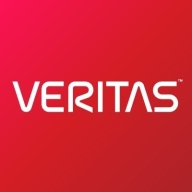

Nasuni and Veritas System Recovery are both significant players in the data management and protection market. Nasuni seems to have the upper hand in scalability and seamless cloud integration, while Veritas excels in rapid data restoration and comprehensive feature set.
Features: Nasuni stands out with scalable cloud storage, unlimited file storage capacity, and efficient global file locking. Veritas System Recovery is noted for its rapid recovery capabilities, detailed disk imaging, and robust backup features, ensuring minimal downtime.
Room for Improvement: Nasuni could enhance its on-premise integration for more hybrid environments, improve automatic data recovery options without manual intervention, and offer more transparent pricing models. Veritas System Recovery might benefit from expanding customer support options for diverse global regions, simplifying its licensing model, and enhancing its cloud compatibility for modern hybrid architectures.
Ease of Deployment and Customer Service: Nasuni's deployment is streamlined and well-suited for cloud environments, with a simple setup process and reliable customer service. Veritas System Recovery provides comprehensive deployment choices, fitting on-premises and hybrid models but may require more setup time. Support is specialized, catering to complex environments.
Pricing and ROI: Nasuni uses a cloud-based pricing model, offering predictable costs and high scalability ROI, especially for cloud-focused enterprises. Veritas System Recovery follows a traditional pricing structure, emphasizing its value in fast disaster recovery justifying its costs in critical data protection scenarios.


Nasuni is a file data services enterprise focused on assisting firms with their digital transformation, global expansion, and information awareness. The Nasuni File Data Platform is a suite of cloud-based services designed to enhance user productivity, ensure business continuity, provide data intelligence, offer cloud options, and simplify global infrastructure. This platform and its auxiliary services are projected to replace conventional file infrastructure such as network attached storage (NAS), backup, and Disaster Recovery (DR), with an expandable cloud-scale solution. By storing file data in scalable cloud object storage from multiple providers, Nasuni positions itself as a cloud-native alternative for traditional NAS and file server infrastructure. Based in Boston, Massachusetts, USA, Nasuni serves sectors like manufacturing, construction, technology, oil and gas, financial services, and public sector worldwide, offering its services in more than 70 countries.
James J., IT Manager at a marketing services firm, says Nasuni’s management dashboard is helpful because he's able to view all of the different filers at once rather than check each one of them individually. He values the software’s security, reliability, good performance, helpful alerting, and responsive support.
According to a Server Engineering Services Lead at a mining and metals company, Nasuni offers good OR and DR capabilities, performs well, offers data security, and continuous file versioning helps recover from hardware failures.
The Managing Director of IT at a construction company appreciates Nasuni because it eliminates a lot of work that was previously done when managing backing up and restoring data files.
Veritas System Recovery 18 delivers superior backup and disaster recovery for servers, desktops, and laptops with a single unified solution that enables businesses to recover from downtime or disasters in minutes. With patented Restore Anyware technology, IT administrators can rapidly restore exactly what they need, when and where they need it - including entire physical and virtual machines to bare metal or dissimilar hardware as well as files, folders, and granular application objects. Unlike other technologies, Veritas System Recovery also provides cross-platform Physical to-Virtual (P2V), Virtual-to-Virtual (V2V), and Virtual to-Physical (V2P) recoveries, making it the perfect complement to physical and virtual environments.
We monitor all Disaster Recovery (DR) Software reviews to prevent fraudulent reviews and keep review quality high. We do not post reviews by company employees or direct competitors. We validate each review for authenticity via cross-reference with LinkedIn, and personal follow-up with the reviewer when necessary.